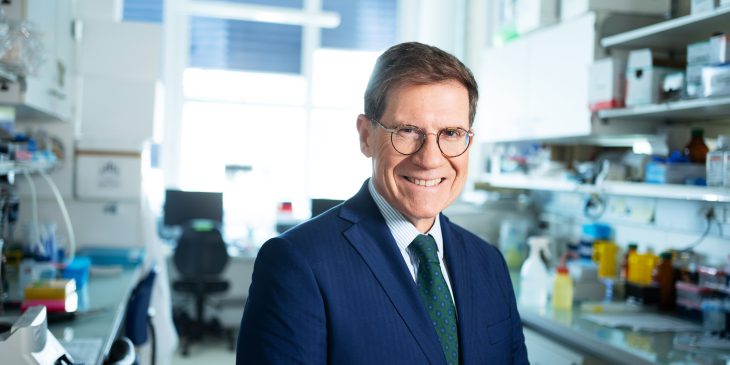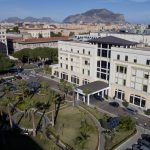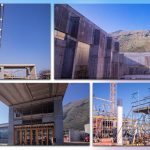UPMC and Fondazione Ri.MED in Italy have chosen renowned molecular biologist Dr. Giulio Superti-Furga from Austria as the scientific director of the foundation and director of the Biomedical Research and Biotechnology Center (BRBC), which is under construction near Palermo, Sicily.
Scheduled for completion by 2025, the BRBC will be managed by UPMC, which is also a partner in Ri.MED. The new research center, funded by the Italian government and expected to house more than 600 scientists and staff, aims to swiftly translate cutting-edge biomedical and biotechnological research into clinical practice and innovative products.
Superti-Furga currently heads the Center for Molecular Medicine (CeMM) at the Austrian Academy of Sciences. He will assume the role of scientific director of the foundation with a focus on directing research priorities and helping to prepare for the launch of the BRBC.
Until the opening of the new center, Superti-Furga will continue to lead CeMM in Vienna, a role that will enable him to foster scientific collaborations and multidisciplinary projects between Ri.MED and the Austrian center, with a particular focus on oncology, immune disorders and age-related diseases.
With an international team comprising over 300 scientists and physicians and several successful company spin-offs, CeMM is considered one of Europe’s premier life sciences institutes. It participates in EU-LIFE, an international network of research institutions aimed at strengthening European research excellence.
“I am extremely pleased to apply my experience in managing and organizing cutting-edge research institutes to an international project of this magnitude,” said Superti-Furga, who is also a professor of medical systems biology at the Medical University of Vienna. “Already the geographical and historical center of the Mediterranean, Sicily has the potential to become a major hub of scientific innovation. That’s why part of our research strategy will focus on leveraging a dense network of international cooperation.”
Facing the Mediterranean Sea, the 164,632-square-meter site of the BRBC will not only house state-of-the-art lab space, but also a 200-seat auditorium, a guesthouse and office space.
“Welcoming Prof. Superti-Furga marks an essential milestone to realize our vision for the BRBC,” said Chuck Bogosta, President, UPMC International, and Executive Vice President of UPMC. “Cutting-edge scientific research will be rapidly translated into new medical discoveries and innovative clinical practice that can be implemented around the world.”
A planned UPMC-managed ISMETT hospital will be built on a site next door, creating a unique hub of research and care. The current ISMETT in Palermo, a partnership between UPMC and the Region of Sicily, has provided transplants and other high-specialty care for more than two decades.
“Dr. Superti-Furga is an exceptional leader, scientist and biotech innovator who will help us to turn our vision for the BRBC into a reality. This unique facility, the result of our successful public-private partnership in Sicily, promises to become a beacon of hope for the patients whose lives will be touched by its groundbreaking research and an engine of economic growth for the entire Mediterranean,” said Dr. Timothy Billiar, chief scientific officer at UPMC and associate vice chancellor for clinical academics at the University of Pittsburgh, which is also a partner in Ri.MED.
From 2017 to 2019, Superti-Furga was a member of the Scientific Council of the European Research Council. He studied at the University of Zurich, Genentech (San Francisco) and IMP (Vienna). He was a postdoctoral fellow and team leader at EMBL (Heidelberg), and co-founded the biotech companies Cellzome, Haplogen, Allcyte (now Exscientia), Proxygen and Solgate. He is a member of the Austrian Academy of Sciences, the German Academy of Sciences Leopoldina, the European Molecular Biology Organization, the European Academy of Cancer Sciences and Academia Europaea.
Journalists interested in learning more can contact mediarelations@upmc.edu.









